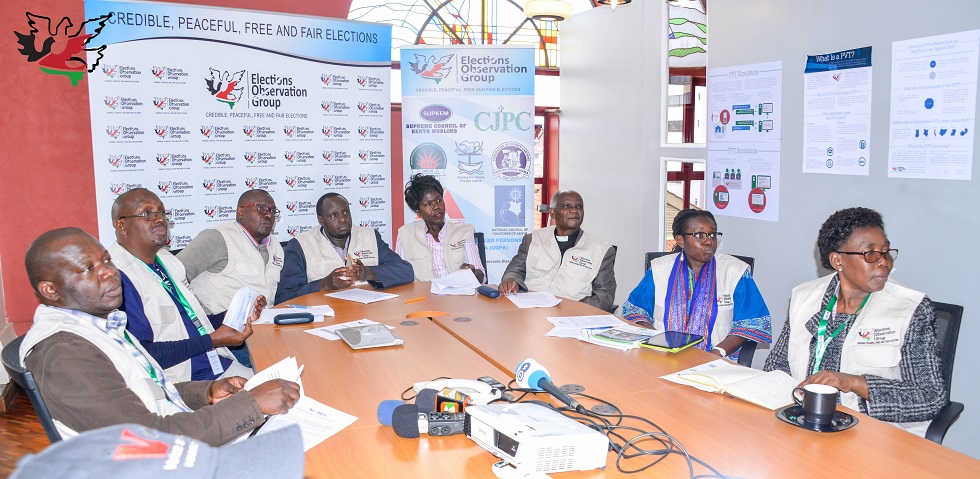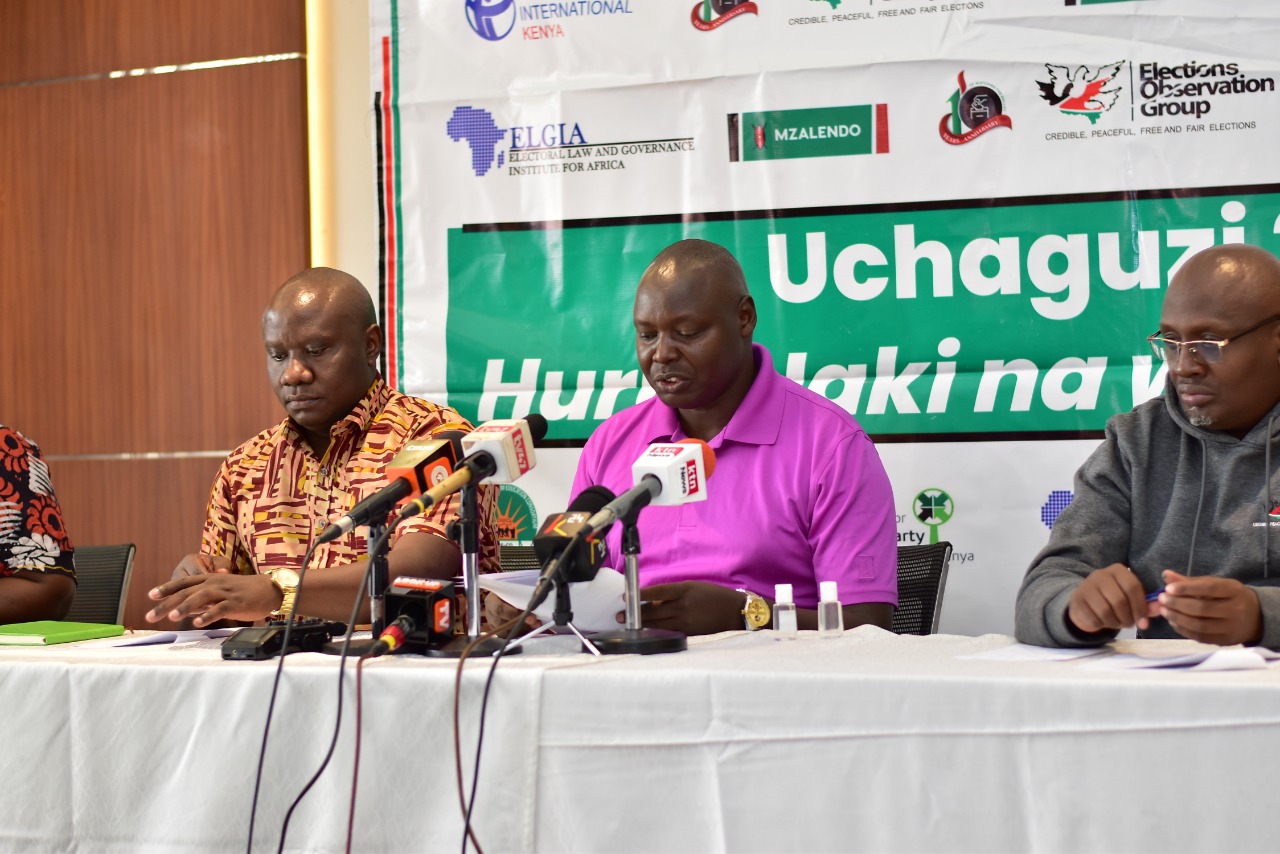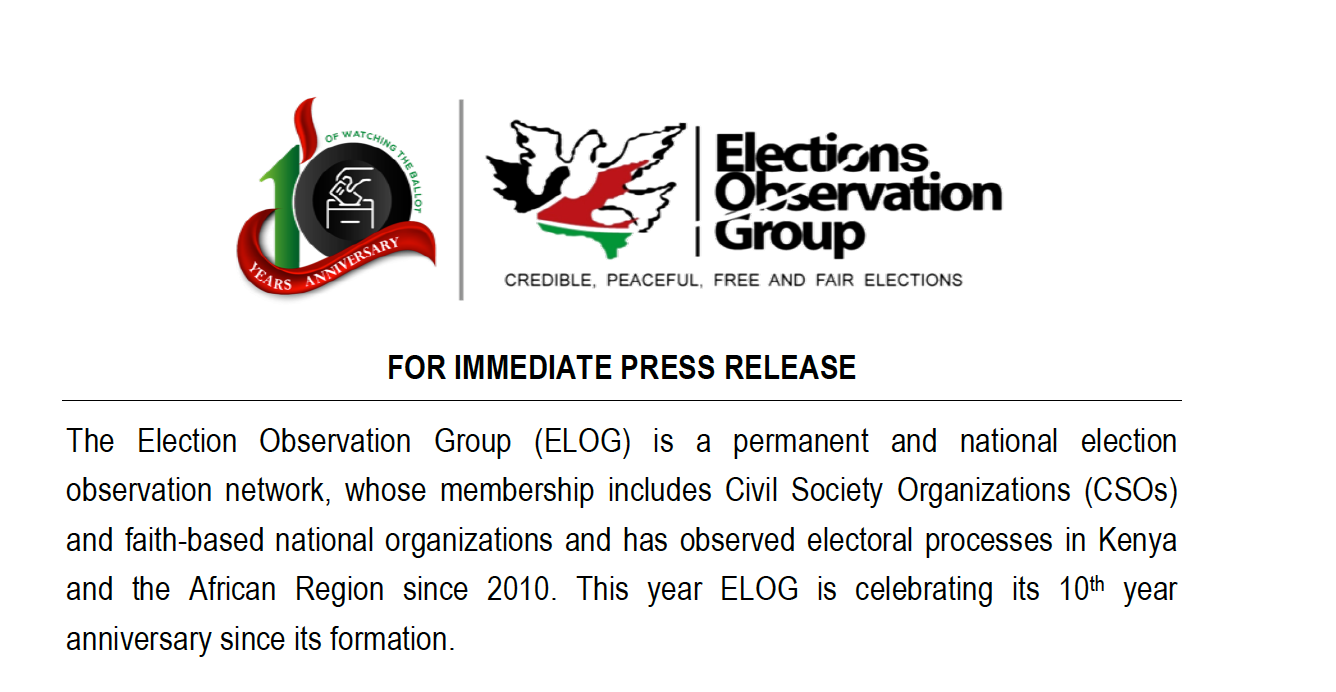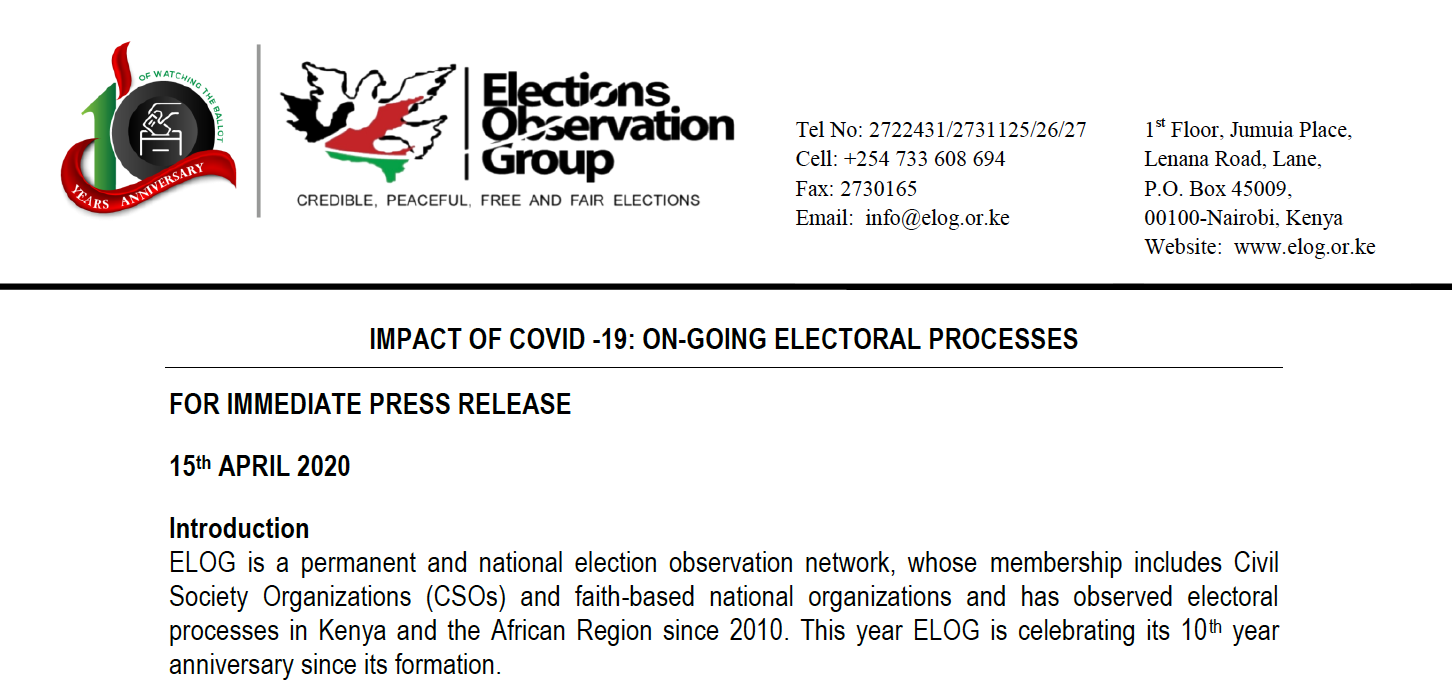IEBC’S FINAL REPORT OF THE DATA FOR THE 2017 GENERAL ELECTIONS
FOR IMMEDIATE PRESS RELEASE
20th MAY 2020
Introduction
ELOG is a permanent and national election observation network, whose membership includes Civil Society Organizations (CSOs) and faith-based national organizations and has observed electoral processes in Kenya and the African Region since 2010. This year ELOG is celebrating its 10th year anniversary since its formation.
ELOG wishes to state the following:
Guided by its five key result areas for this electoral period, ELOG has been observing the performance of key electoral actors and monitoring continuous electoral processes in the country.
ELOG is aware that IEBC released its report of the 2017 General Election data on Sunday 17th May, 2020. However, the Commission recalled it shortly afterwards for reasons termed as “a few typographical errors occasioned by massive data.” It has since indicated that it will share its corrected document in due course. While acknowledging that such an error can occur in any human endeavor, ELOG is concerned that it may dent the credibility of the Commission and therefore, guided by its principles of open data, wishes to state as follows, that:
a) The data uploaded in the said report contained material errors, which included some candidates erroneously ascribed to parties they did not vie with, and representing electoral jurisdictions that they did not run under. ELOG urges the IEBC to conduct comprehensive quality checks before disseminating the information to the public.
b) As the commission corrects its data, it must adhere to open data principles of completeness, timeliness and accuracy. The typographical errors notwithstanding, delayed dissemination of the 2017 election data has occasioned widespread anxiety and apprehension over the credibility of the aforementioned report. Given that the dissemination of the report is time sensitive, it is imperative that the Commission is able to undertake the necessary corrective measures and publish the report as soon as possible.
c) The data is released in machine-readable format to enable its analysis and to facilitate discussion and scrutiny. This is in line with the principle of open data on machine processability of data.
d) The number of rejected ballots was not indicated for all positions apart from the presidential tallies. It is important for the Commission to indicate the same for all the elective positions. This is in line with the principle of completeness of data.
e) Prison data (county 049) on the presidential vote was not indicated in the report ELOG seeks to see that the aforementioned data is captured in the final document.
f) While data was disaggregated in terms of gender for elective positions, on voters there was no disaggregation of data to indicate gender and age. ELOG urges the Commission to release the data in a more granular form than the earlier version.




